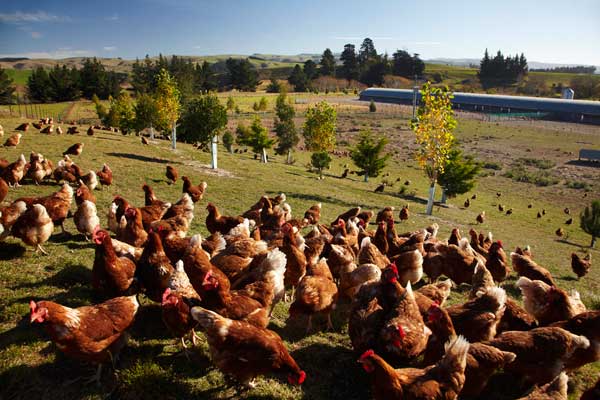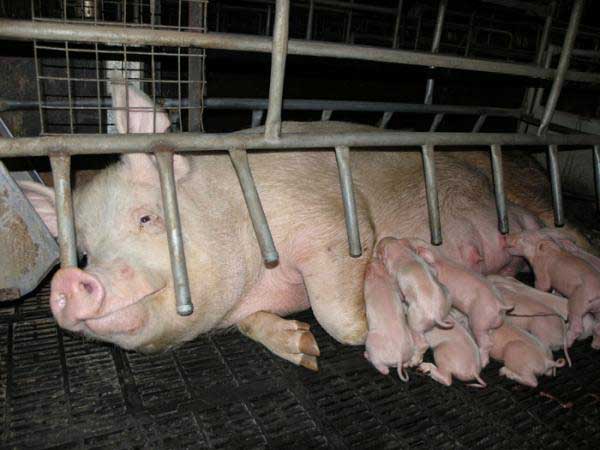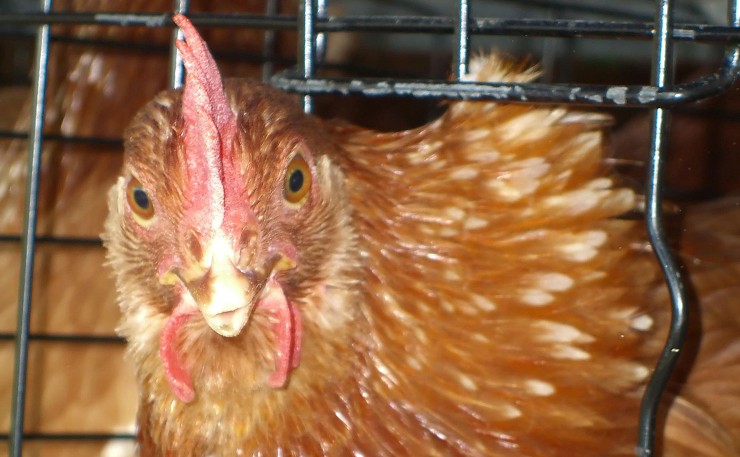Last week, Victoria’s Napthine Government confirmed that it intends to introduce US style ‘ag gag’ laws before the next Victorian state election in November.
Eight such laws have been enacted in various parts of the US.
The initiative is supported by the Victorian Farmers Federation whose president Peter Tuohey is reported to believe that farmers needed more protection against animal activists.
Over the weekend the federal Minister for Agriculture Barnaby Joyce also announced that the states and federal governments will be working together to crack down on animal activists, including plans to revoke some organisations’ charity status.
Again, the proposal is receiving strong support from some producers with Victorian egg farmer Meg Parkinson arguing that “these animal liberationists are just trying to stop all use of animals”.
If ‘ag gag’ style laws are introduced in Australia, and reflect the type of legislation implemented in the US, they are likely to make the collection and distribution of images captured within factory farms strictly illegal and heavily punishable.
Australia already has laws prohibiting trespass, and animal activists are regularly prosecuted under those laws.
The difference here is that people who are within factory farms legally will be prohibited from photographing what they see.
This will be a significant obstruction to information acquisition and distribution, as it is often people who visit factory farms for incidental purposes – truck drivers, trades people, vets, casual labourers – who are most affronted by what they see.
Moreover, the slated law may have an overall ‘chilling effect’ on people’s willingness to distribute the images they capture, certainly until the court’s interpretation of the law is established.
No doubt this is precisely what Minister Joyce is hoping for. But what he’s hoping for is clearly not in the community’s best interest.
On this matter the community has spoken, and it overwhelming wants to know where it’s food comes from.

Moreover, while only a small proportion of the community is vegetarian or vegan, people who eat eggs, diary and meat care about minimising suffering, at least to some extent.
In 2011, 34 per cent of all eggs sold in Australia were labeled free-range, representing 44 per cent of the entire value of the market.
Woolworths is so certain that people don’t want to eat eggs from birds in cages that it has committed to selling exclusively cage-free eggs by 2018.
In a survey of 900 people undertaken by consumer watchdog Choice in 2011, 60 per cent of respondents said that buying free-range eggs is essential to them, even though free-range eggs attract a price premium.
Of those who buy free-range, 85 per cent reported that they are motivated by animal welfare concerns.
While the meaning of free-range is far from settled, and serious questions remain around whether consumers are getting what they pay for, these facts nonetheless attest to the mind-set of consumers.
They care who lays their eggs and they want her to suffer minimally.
Concern for the wellbeing of commercial egg laying hens is not misplaced. Of all the nasty things humans have invented, a small wire cage that is intended to be home to three to four birds must be in the top 50.
The birds have almost no freedom of movement. They can’t stretch their wings, build a nest, see the sun or escape their cage mate who is just as likely to peck them to death.
In 18 months each bird will be dead, having laid around 550 eggs.
The South East Asian rainforest fowl from which the commercial egg-laying hen was bred lay around seven eggs per year and live well beyond five years.
I don’t eat eggs. It’s a product I can’t support. But I know why I’m against the battery cage.
I have been inside a factory farm. Not at the invitation of the farmer. My visits were at night. But most people have never – and will never – step foot inside a factory farm, and battery cages are impossible to see from the street.
So how did most people come to the conclusion that they don’t want to buy eggs laid by hens living in small wire cages?
There’s only one logical answer, and it is that animal activists informed them.
In short, if you know what a battery cage looks like you should thank an animal activist.
Type the words ‘battery cage’ into Google Images and you will be presented with photo after photo of birds packed tightly into small wire cages.
None of those images come courtesy of farmers. All of those images come courtesy of animal activists.
And it turns out that the community appreciates the heads up.
Given that the majority of people don’t want to buy eggs from hens living in battery cages, and that the images showing what a battery cage looks like are provided to the community by animal activists, it is clear that animal activists are providing a community service that is appreciated by most people.
The risk with laws like those flagged in Victoria is that the important communication and education role played by animal activists will be lost.
While most people will always carry the image of hens in battery cages with them, when it comes to animal suffering there is no end game.
Industry evolves new ways of farming animals and animal activists continue to bring news of those changes to the community.
Concerned about live animal exports? Thank Animals Australia.
Think sow-stalls are terrible? Thank Animal Liberation.

Would never buy a dog from a pet shop? Thank Oscar’s Law.
But there’s plenty of ways in which animals suffer that the community doesn’t yet know about.
My hope is that the community doesn’t just leave the work of opposing ag gag laws in Australia to animal activists.
I hope that people appreciate the work done by animal activists and that condemnation of these laws is widespread, allowing animal activists to continue their widely valued, unpaid community service.
Donate To New Matilda
New Matilda is a small, independent media outlet. We survive through reader contributions, and never losing a lawsuit. If you got something from this article, giving something back helps us to continue speaking truth to power. Every little bit counts.




